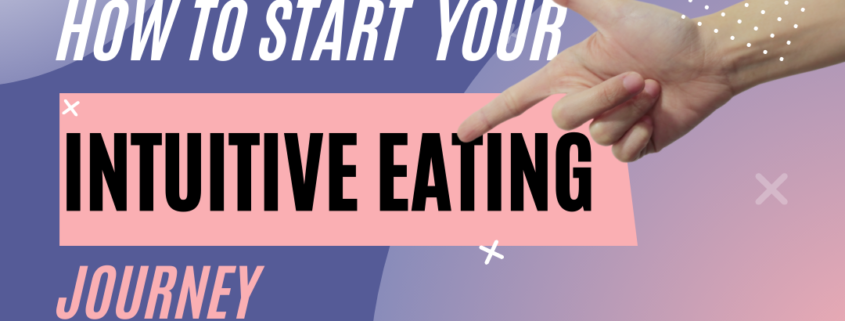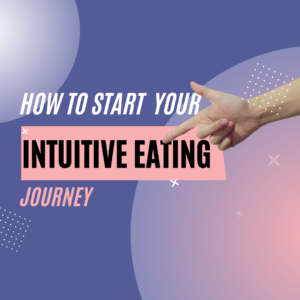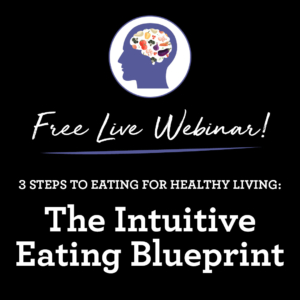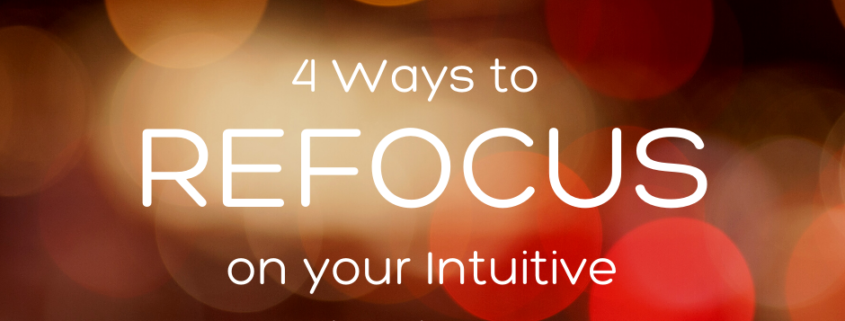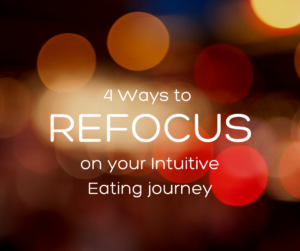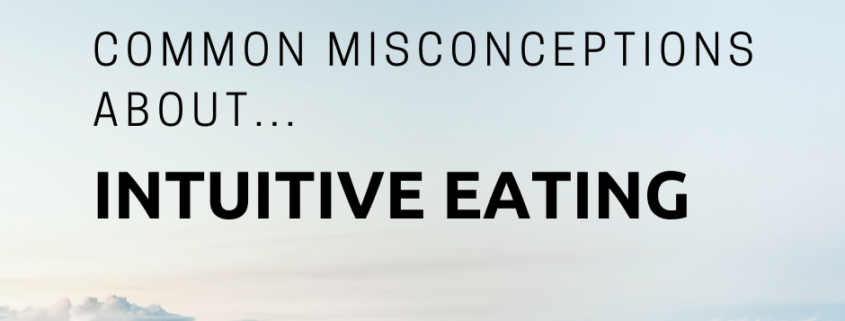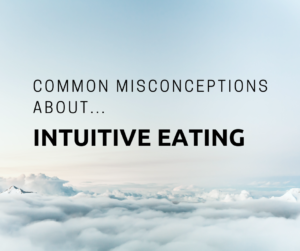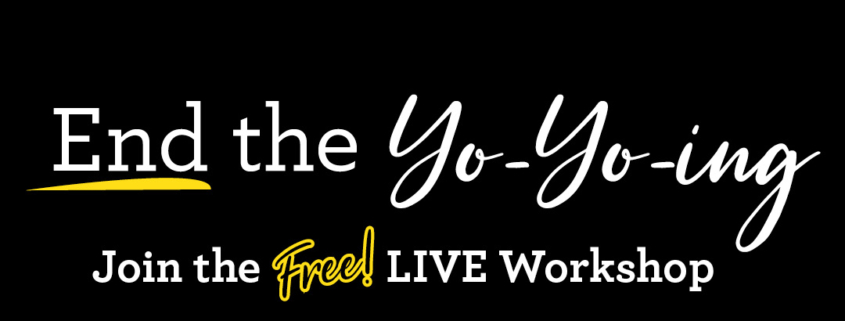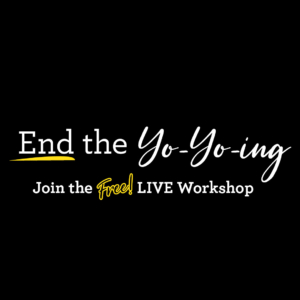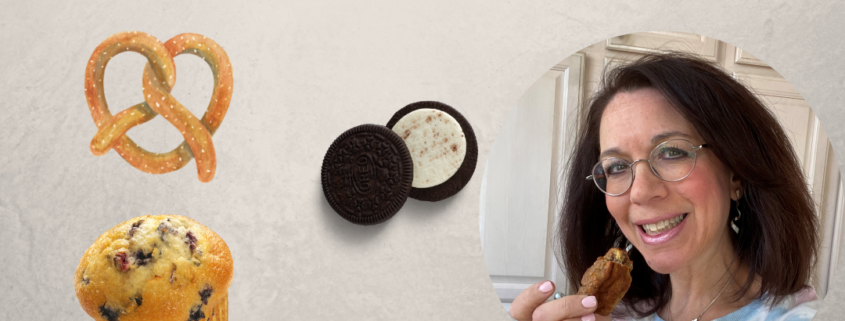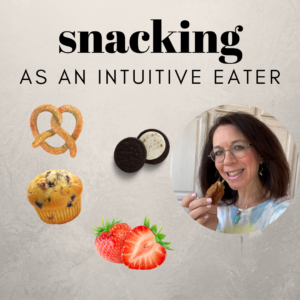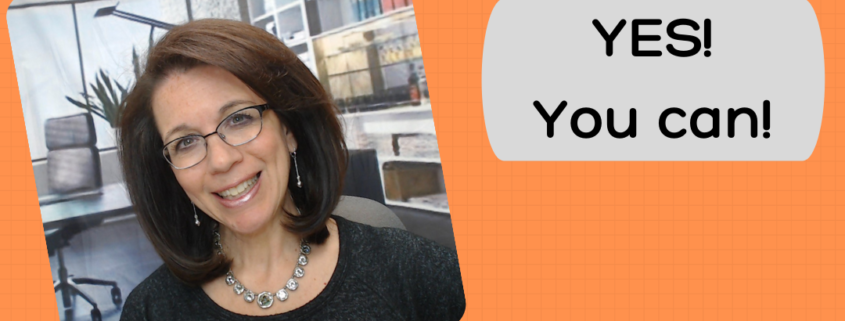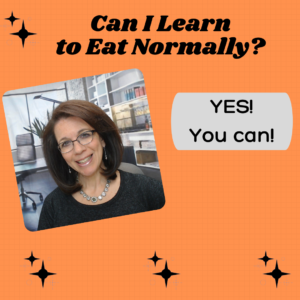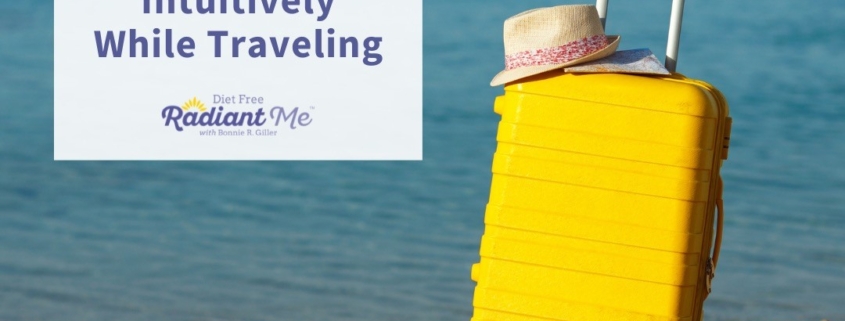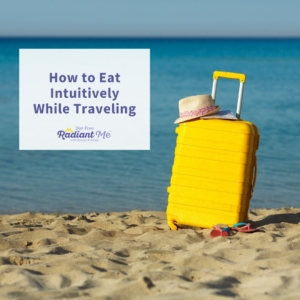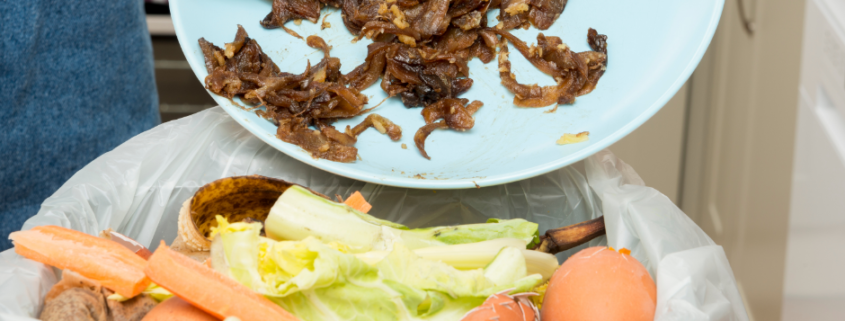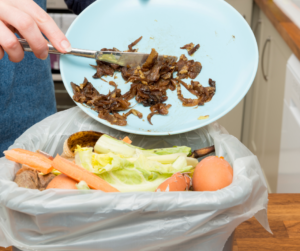Intuitive Eating on Vacation
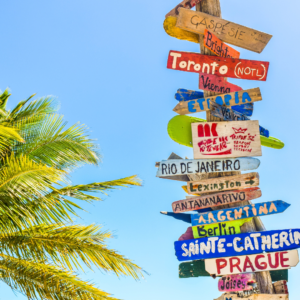 Have I mentioned yet that summer is my favorite season? Yes, it is!
Have I mentioned yet that summer is my favorite season? Yes, it is!
The hot weather, spending time outdoors, longer days, time off…I can on and on. I just love it.
Whether you’re planning a weekend away, a visit to a tropical island, or a staycation, food and eating challenges might come up, especially for those who are in the process of recovering from dieting. If this is you, then keep reading!
If you feel the urge to say, “I’m on vacation, I’ll enjoy myself and start over when I get home”, then please know that you’re not alone. This is what’s called the “vacation mindset.” When you’re on vacation, the sneaky diet mentality and food police might join you.
This never pans out well. So, let’s discuss how you can continue your intuitive eating practice while you’re soaking up the sun!
- Avoid the All or Nothing Mindset
If you go into vacation thinking “I won’t eat anything I shouldn’t, or “I’m just going to eat and deal with it when I get home”, you’re thinking in extremes. Instead, commit to staying fully present while on vacation, and continue to make purposeful food choices, just like you’re doing at home.
- Pay Attention to Your Fullness Signals
Go ahead and explore new foods and enjoy familiar ones. Remind yourself to check in mid-meal to see how you are feeling. As you become more satisfied, remind yourself that you can come back and order this food again. You don’t need to eat it all, to a point of being overfull and uncomfortable. That just takes away from the whole experience.
- Listen for Hunger
When you’re out and busy trying to jam all the activities you would like to do into a short time frame, you may forget to stop and eat lunch and then feel overhungry by dinner. Throughout the day check-in with your body and listen for those hunger cues. Make sure you carry snacks with you so you can answer the hunger when it calls.
- Make Movement Fun
Going to the hotel gym on vacation may not be your cup of tea, and that’s okay. However, there are many movements you may enjoy doing, that you can do while vacationing. Or you may want to try something new, such a hiking as local trail, or kayaking in the clear waters. Find an activity that is appealing to you, and remove all expectations. Just have fun!
We all need a break, and the summer is a great time to take a vacation! Tell the food police they are not welcome and enjoy yourself while making memories!


